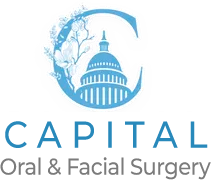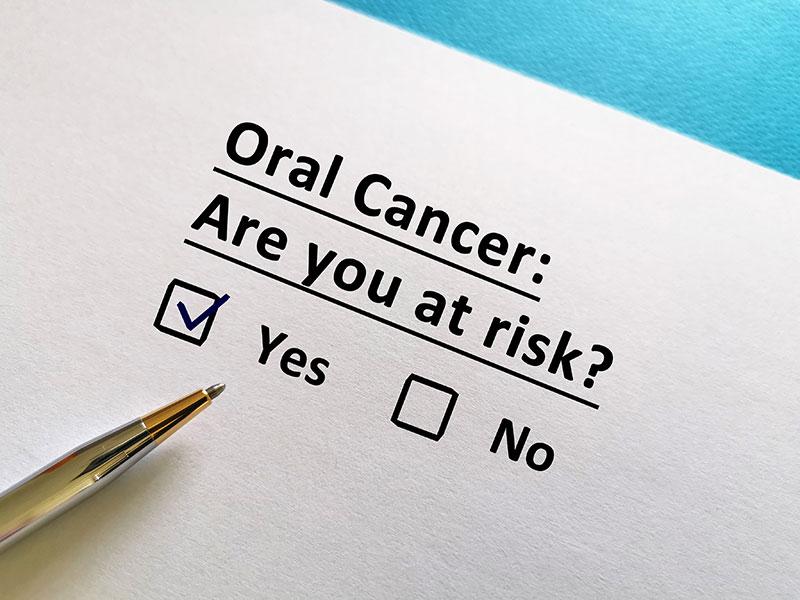Oral cancer is a potentially life-threatening condition that can affect various parts of the oral cavity, including the lips, tongue, gums, and the lining of the mouth. Often overlooked, oral cancer can be challenging to detect in its early stages, making it essential to prioritize regular screenings and know the warning signs.
Capital Oral & Facial Surgery Center is committed to helping our patients understand the importance of early detection and providing comprehensive oral cancer screenings and treatment options as part of our dental, oral, and maxillofacial surgery services.
In this insightful guide, we will discuss the early signs of oral cancer, emphasize the significance of regular oral cancer screenings, and delve into the available treatment options for patients diagnosed with this condition. Knowledge is the first line of defense, and understanding the symptoms of oral cancer and the value of routine screenings can equip patients with the tools they need to take charge of their oral health.
At Capital Oral & Facial Surgery Center, we understand that patients may feel intimidated or overwhelmed by the topic of oral cancer. Our compassionate team is dedicated to providing the necessary support and guidance to help patients navigate their oral care journey, from screenings to treatments. We invite you to explore the essential aspects of oral cancer detection, prevention, and treatment to empower yourself in safeguarding your oral health.
Early Signs of Oral Cancer: Identifying Red Flags
Detecting oral cancer in its earliest stages is critical for effective treatment and optimal outcomes. Educating yourself about the common signs and symptoms can empower you to recognize potential red flags and seek medical attention promptly. Some early indicators of oral cancer include:
Persistent Cores: Ulcers or sores in the mouth that do not heal within two weeks could be a symptom of oral cancer.
Pain or Discomfort: Unexplained pain, tenderness, or numbness in the mouth, lips, or throat may indicate a potential issue.
Difficulty Swallowing or Chewing: If you experience difficulty or discomfort while swallowing, chewing, or moving your jaw, it could be a sign of oral cancer.
White or Red Patches: Unusual white or red patches inside the mouth or on the lips and gums can be a symptom of oral cancer.
Voice Changes or Hoarseness: Persistent hoarseness or changes in your voice may be an early warning sign.
Unexplained Weight Loss: Rapid and unexplained weight loss can be associated with many types of cancer, including oral cancer.
The Importance of Oral Cancer Screening: Early Detection Saves Lives
Routine oral cancer screenings play a pivotal role in early detection, improving treatment success rates, and ultimately saving lives. Screenings involve a thorough examination of the oral cavity and surrounding areas to identify any abnormalities or changes. Some reasons why oral cancer screenings are essential include:
Improved Survival Rates: Early detection of oral cancer can significantly improve treatment outcomes and survival rates. When detected in its earliest stages, the five-year survival rate for oral cancer is approximately 84%.
Prevention of Serious Complications: Detecting and treating oral cancer early helps prevent the spread of cancerous cells to other areas of the body, thereby reducing the risk of severe complications.
Maintenance of Overall Oral Health: Regular oral cancer screenings are an integral part of maintaining optimal oral health and addressing potential issues before they escalate.
Increased Treatment Options: Identifying oral cancer at an early stage often allows for more conservative and less invasive treatment options, improving the overall quality of life for patients.
Oral Cancer Treatment Methods: Tailored Approaches for Optimal Outcomes
Treatment of oral cancer typically depends on the size, type, and stage of cancer, along with the patient's overall health and personal preferences. Some common treatment options for oral cancer include:
Surgery: Surgical intervention is often the first line of treatment, involving the removal of cancerous cells and a small amount of surrounding healthy tissue. In more advanced cases, reconstructive surgery may also be necessary to restore function and appearance.
Radiation Therapy: This approach involves the use of high-energy beams, such as X-rays or protons, to destroy cancerous cells. Radiation therapy may be used alone or in conjunction with surgery or chemotherapy.
Chemotherapy: Chemotherapy utilizes drugs to kill cancer cells or stop their growth. It can be administered intravenously, orally, or applied topically, depending on the specific medication and treatment plan.
Immunotherapy: This innovative approach boosts the patient's immune system to help fight cancer cells. Immunotherapy drugs can work in tandem with other treatments or as a stand-alone option for certain types of oral cancer.
Targeted Therapy: These medications target specific genetic or cellular characteristics unique to cancer cells, helping block their growth and spread without harming healthy cells.
Empowering Patients to Safeguard Oral Health
Understanding the early signs of oral cancer, recognizing the importance of routine screenings, and exploring the available treatment options are critical steps in protecting your oral health. By educating yourself about oral cancer and working closely with your dental professionals, you can enhance your ability to detect potential problems early and make informed decisions about your oral care.
Looking for an experienced oral surgeon in Washington? Contact Capital Oral & Facial Surgery Center today for comprehensive support throughout your oral cancer journey. From early detection through treatment and recovery, our team is here to guide you in maintaining optimal oral health. Schedule a screening or ask any questions you may have about oral cancer. Our commitment is to safeguard your oral health and well-being every step of the way. Contact us now to learn more.


